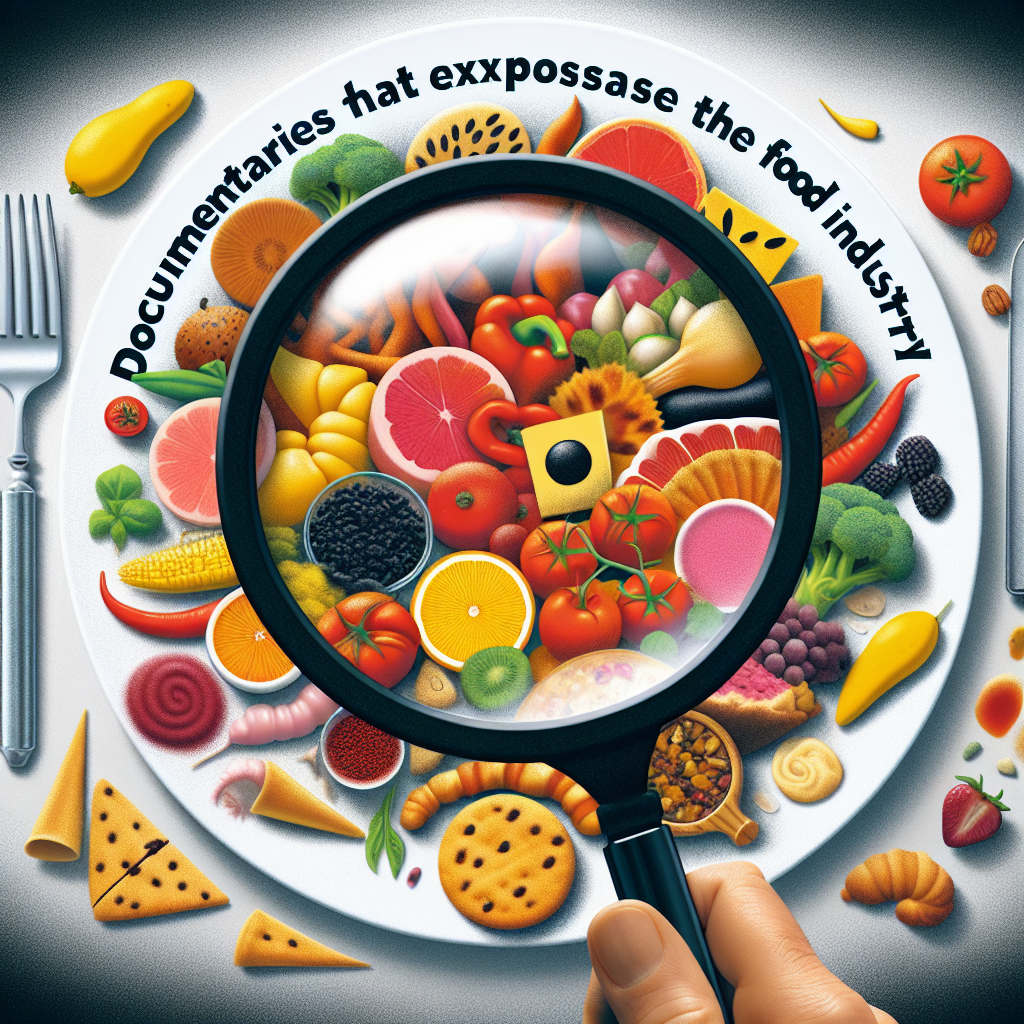[ad_1]
### Biting Into the Truth: Documentaries That Expose the Food Industry
The food industry, for all its flavors and varieties, often leaves a bitter aftertaste with its less-known practices related to environmental sustainability, animal welfare, and health impacts. A growing body of documentary films serves as a window into these obscured aspects, inviting viewers to rethink their dietary habits and the broader implications of their food choices. This article dives into the role of documentaries in unveiling the raw truths about the food industry, emphasizing films that have sparked significant discourse and change.
### The Catalysts of Change
Several documentaries over the years have acted as catalysts, stirring public awareness and sometimes outcry, leading to tangible changes in consumer behavior and industry standards. These films often uncover unsettling truths about the processes involved in taking food from farms and factories to our plates.
### “Food, Inc.” (2008)
Perhaps one of the most influential films in this genre, “Food, Inc.” offers a critical look at the corporate food industry. It highlights how industrial food production has been reshaped over the years, often at the expense of consumer health, the livelihood of small farmers, and animal welfare. Covering a range of issues from GMOs to antibiotic use in livestock, the documentary prompts viewers to consider the broader impacts of their food choices.
### “Forks Over Knives” (2011)
“Forks Over Knives” shifts the focus towards health, specifically the link between diet and chronic diseases. Presenting compelling evidence and testimonials, the film advocates for a plant-based diet as a means to counter health problems. It challenges the dependency on animal products and processed foods, spotlighting the benefits of whole foods and vegetables for individual health, as well as for environmental sustainability.
### “Cowspiracy: The Sustainability Secret” (2014)
This documentary tackles the environmental impacts of animal agriculture, framing it as a prime driver of deforestation, water use, and greenhouse gas emissions. “Cowspiracy” calls into question the practices of leading environmental organizations, urging a more critical approach to sustainability that includes reevaluating dietary choices for the sake of planetary health.
### “Rotten” (2018)
In a series presented by Netflix, “Rotten” takes viewers deep into the supply chains of various food products, from honey to garlic and beyond. Each episode reveals the corruption, waste, and dangers lurking within these chains, highlighting the struggles of small-scale producers and the impacts of global trade on food safety and sustainability.
### The Impact
Documentaries like these have not only influenced individual viewers but have also led to broader debates on food policies, sustainability, and ethics. They’ve spurred discussions in educational institutions, prompted policy reviews, and even influenced changes in business practices within the food industry.
### FAQs
**Q: Can documentaries truly change how the food industry operates?**
A: While documentaries alone may not overhaul industry operations, they play a crucial role in raising awareness and prompting discussions among consumers, businesses, and policymakers. Consumer demand, as influenced by the newfound awareness, can drive change in the industry.
**Q: Are there criticisms of these documentaries?**
A: Yes, some critics argue that these documentaries can sometimes present a one-sided view, potentially oversimplifying complex issues or relying on emotional appeal rather than comprehensive data. Industry representatives often claim that these films ignore improvements and regulations in place to address the issues highlighted.
**Q: How can I ensure that I make informed food choices?**
A: Educate yourself through a variety of sources, seek out information from both documentaries and scientific literature, and consider the sources of your food. Supporting local and sustainable food systems can be a more ethical and environmentally friendly way to eat.
**Q: What can I do if I’m concerned about the issues presented in these documentaries?**
A: Beyond adjusting personal dietary choices, you can participate in local food advocacy groups, support policies aimed at improving food industry practices, and engage in community education to spread awareness.
### In Conclusion
The power of documentaries to expose the hidden layers of the food industry is undeniable. By presenting often unseen aspects of how our food is produced, processed, and sold, these films encourage a deeper understanding of the implications of our food choices. While they may face criticism for their approach or factual debates, the conversation they ignite is a vital step towards a more informed, ethical, and sustainable food system. As viewers bite into the truths unveiled, the collective push for change gathers momentum, proving that awareness can indeed lead to action.
[ad_2]

Leave a Reply